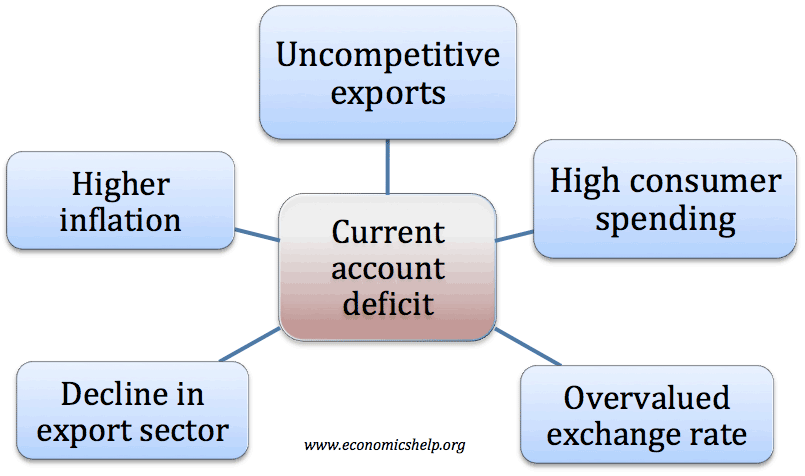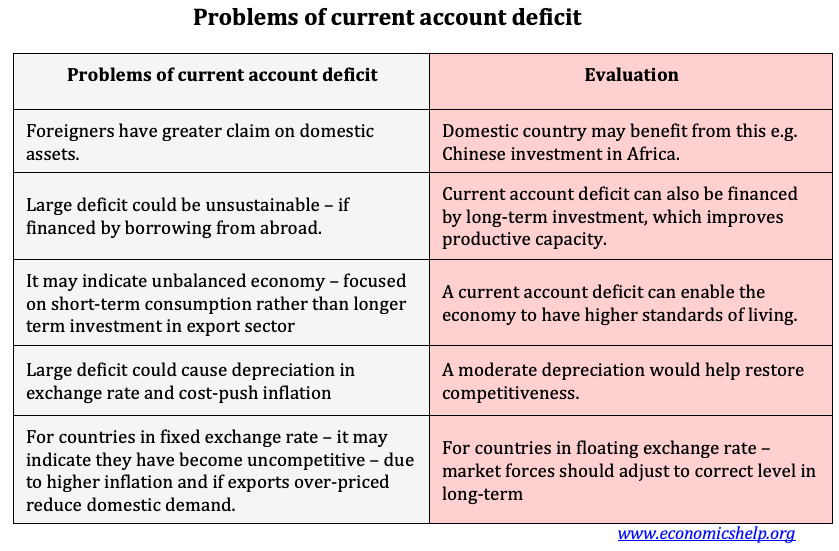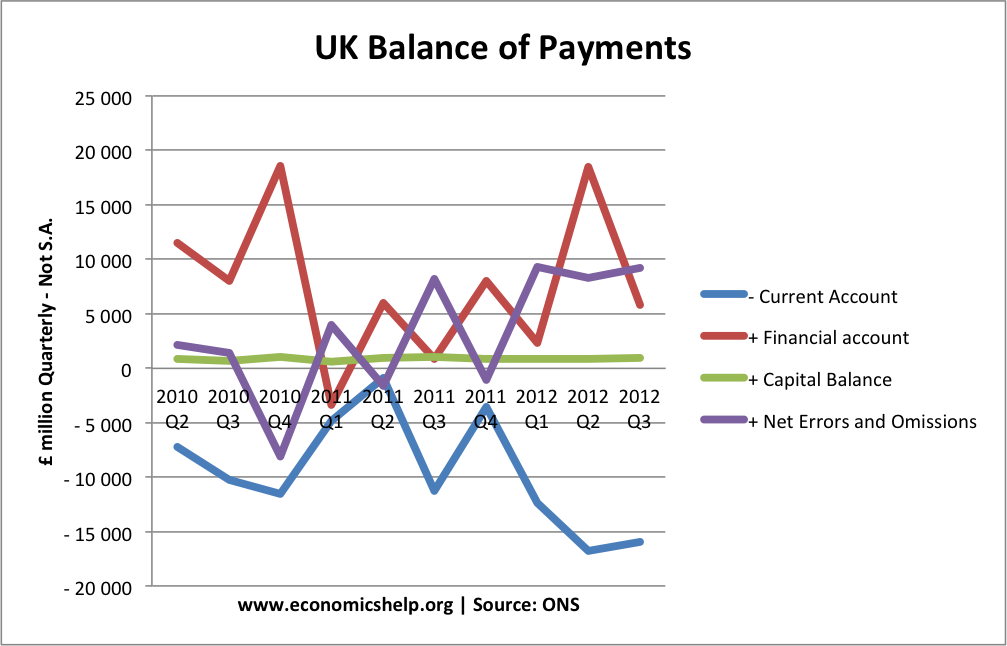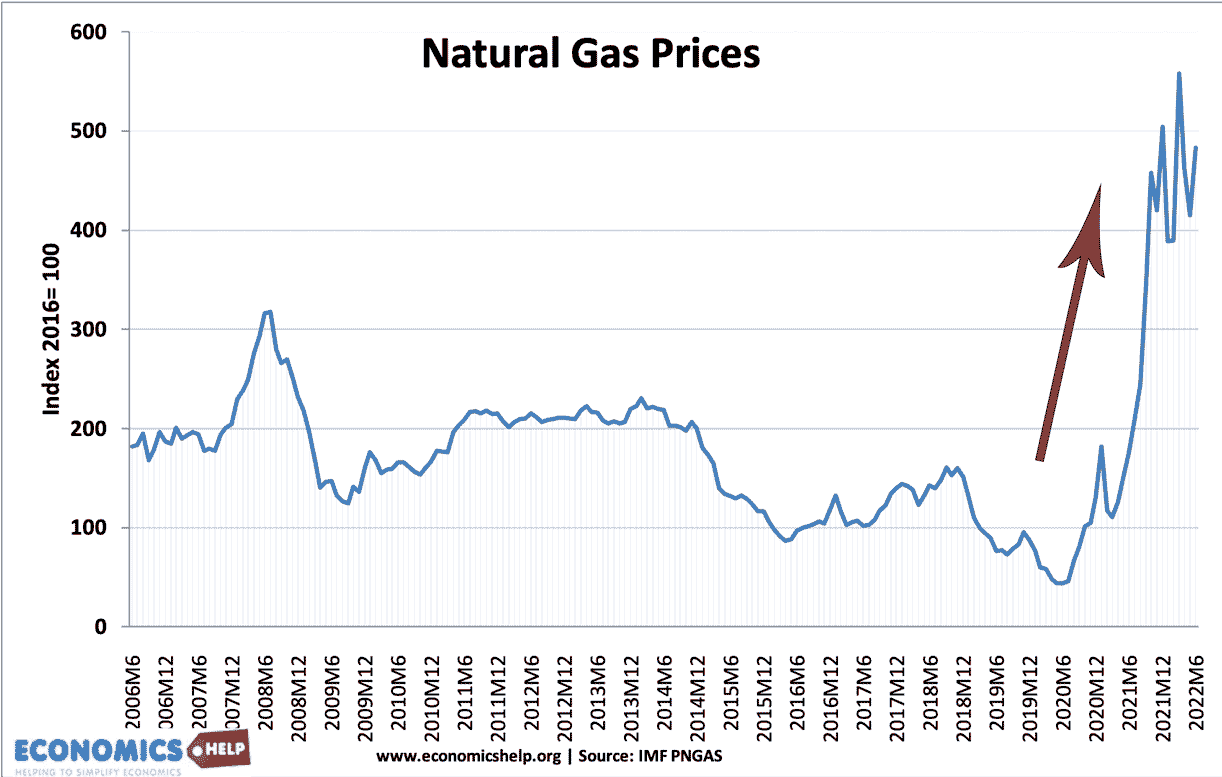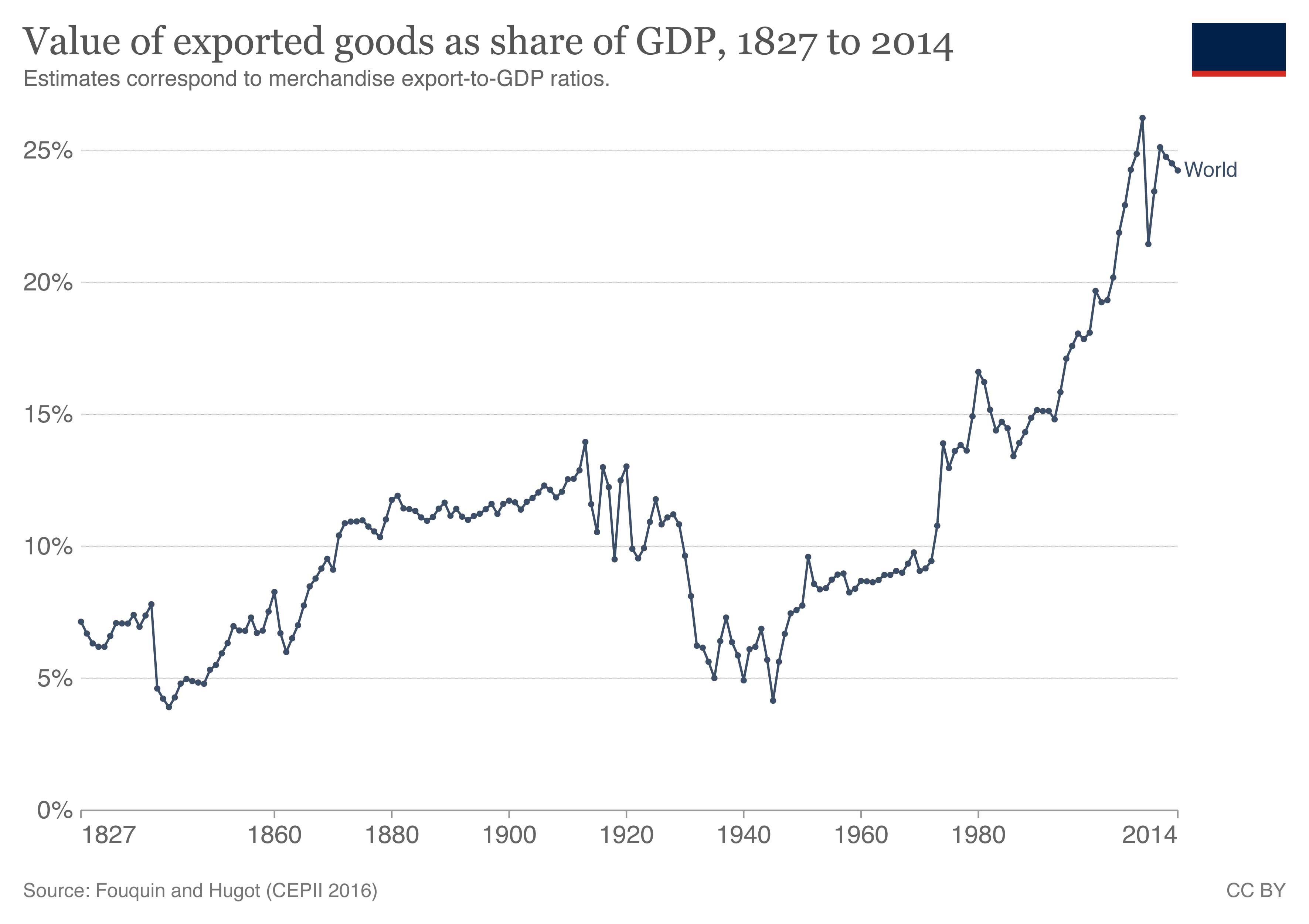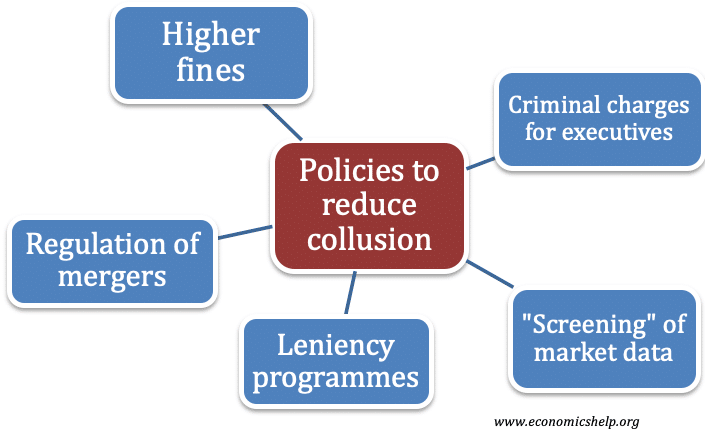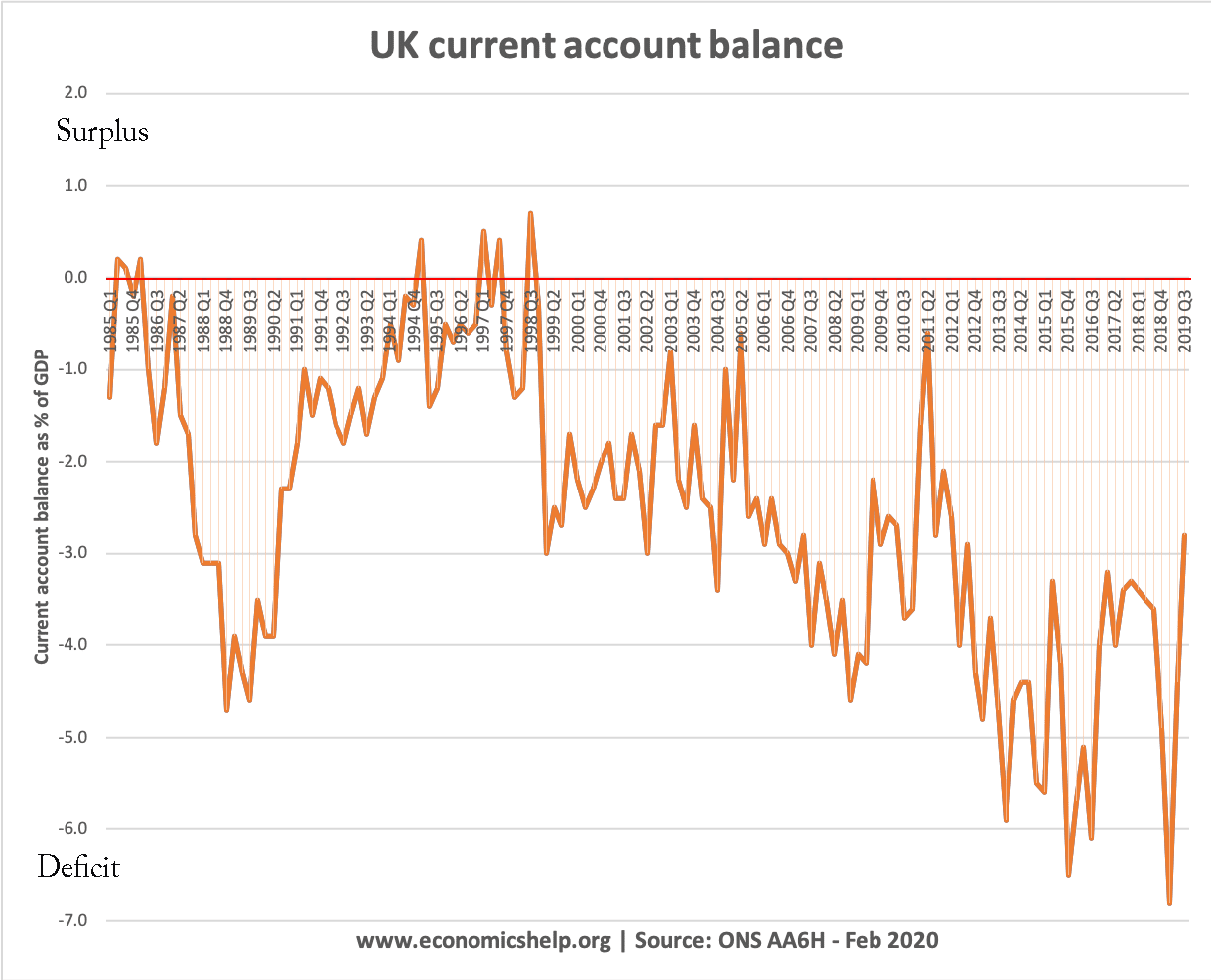Current Account Balance of Payments
The current account on the balance of payments measures the inflow and outflow of goods, services, investment incomes and transfer payments. The main components of the current account are: Trade in goods (visible balance) Trade in services (invisible balance), e.g. insurance and services Primary income account – includes – compensation of employees, investment income from …

